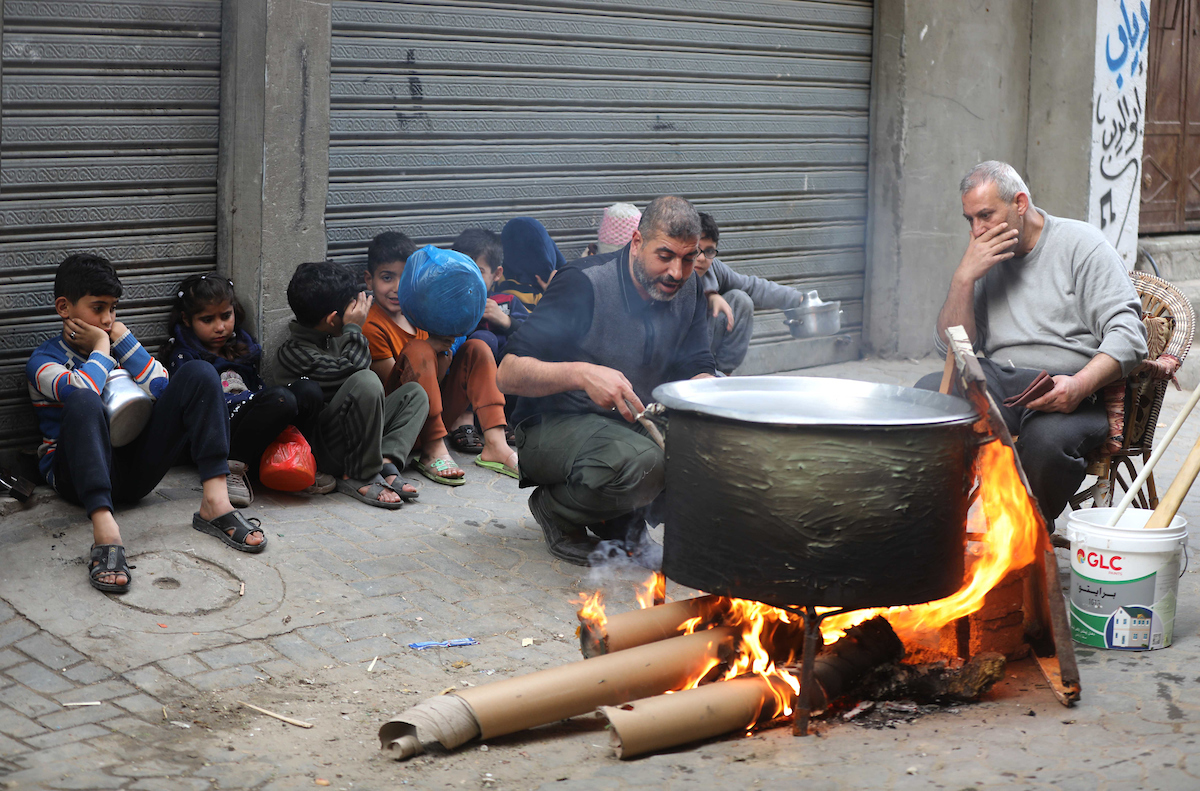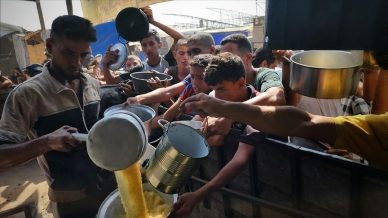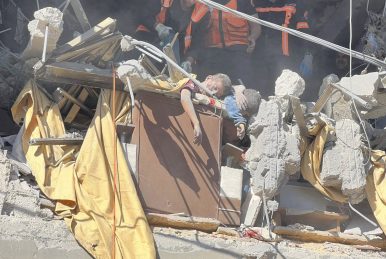GAZA, (PIC)
In Gaza, the last minutes before iftar are unlike anywhere else in the world. Here, sunset does not only signify the end of a long day of fasting, but it is also a race against time amidst harsh conditions, where the sounds of the call to prayer blend with the noise of generators, and sometimes with the echoes of distant or nearby shelling, creating a scene that encapsulates the meaning of life in wartime.
In the streets: Searching for a little amidst nothingness
An hour before the Maghrib call to prayer, the modest markets are bustling with activity despite the scarcity of goods. Vendors stand at their stalls, which no longer display much; a few vegetables that have managed to withstand the siege, loaves of bread just out of the few remaining ovens, and cups of tamarind or apricot juice that strive to maintain their place on the table despite the circumstances. People move quickly, buying what they can, but their gazes carry a weight greater than mere hunger, as everyone knows that the iftar may be interrupted by the sound of an explosion or a missile that could turn the moment into a new tragedy.
In the homes: A modest table and renewed hope
Inside the homes, mothers work with limited resources to prepare the iftar meal. Not all homes have electricity, so residents rely on candlelight or weak solar-powered lamps. On the table, there are no lavish spreads like in previous years, just simple plates of rice or lentils, perhaps a small salad, and pieces of bread that were obtained with great difficulty. Everyone makes an effort to sit together, even if there are empty seats left by martyrs, prisoners, or the missing.
In almost every home, there is someone absent, but their memory is present, and their name resonates with the prayers that precede the meal.
The moment of iftar: Joy mixed with fear
When the call to prayer is raised, trembling hands reach for dates and a glass of water, but eyes remain fixed on the sky, as if watching their fate. No voice here rises above the sound of prayer, not only to lift the calamity but also to protect the family in the coming minutes, which may bring shelling or painful news from another part of the city.
Iftar in Gaza is not just a meal that ends the day of fasting; it is a ritual of resilience, where people try to cling to life amidst the ashes and insist on living despite all the death surrounding them.














